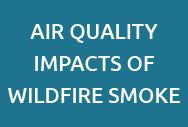
The B.C. government has declared a provincial state of emergency to support the province-wide response to the ongoing wildfire situation.
Wildfires can result in poorer quality air. Wildfire smoke is harmful to human health, especially in older adults, infants, young children, pregnant women and people with chronic conditions such as asthma, chronic obstructive pulmonary disease, and heart disease.
Common symptoms can include lung irritation, eye irritation, runny nose, sore throat, headaches, and mild cough. If you experience more severe symptoms such as shortness of breath, severe cough, dizziness, chest discomfort, heart palpitations, or wheezing, seek medical attention immediately.
Protect yourself and your family by taking the following steps now, ahead of any potential exposure to smoky air:
- Check your medications, especially rescue medications for breathing
- Keep windows and doors closed if possible without overheating
- Use a portable HEPA air cleaner
- Stay hydrated
- Reduce time spent outdoors and reduce strenuous activities, because breathing harder means inhaling more smoky air
- Pay attention to air quality reports, especially the air quality health index
- Spend time in a home or community space that can act as a clean air shelter, a space that has filtration to help reduce smoke exposure. Community clean air shelters can be found in many public buildings such as shopping malls, libraries and local community centres. These spaces have appropriate cooling and air filtration equipment that will protect people from experiencing irritating symptoms. Call your local municipality for information about public spaces in your community with clean air.
For more information about air quality, please visit fraserhealth.ca/airquality.
For information about wildfire smoke, please visit bccdc.ca/wildfiresmoke.
